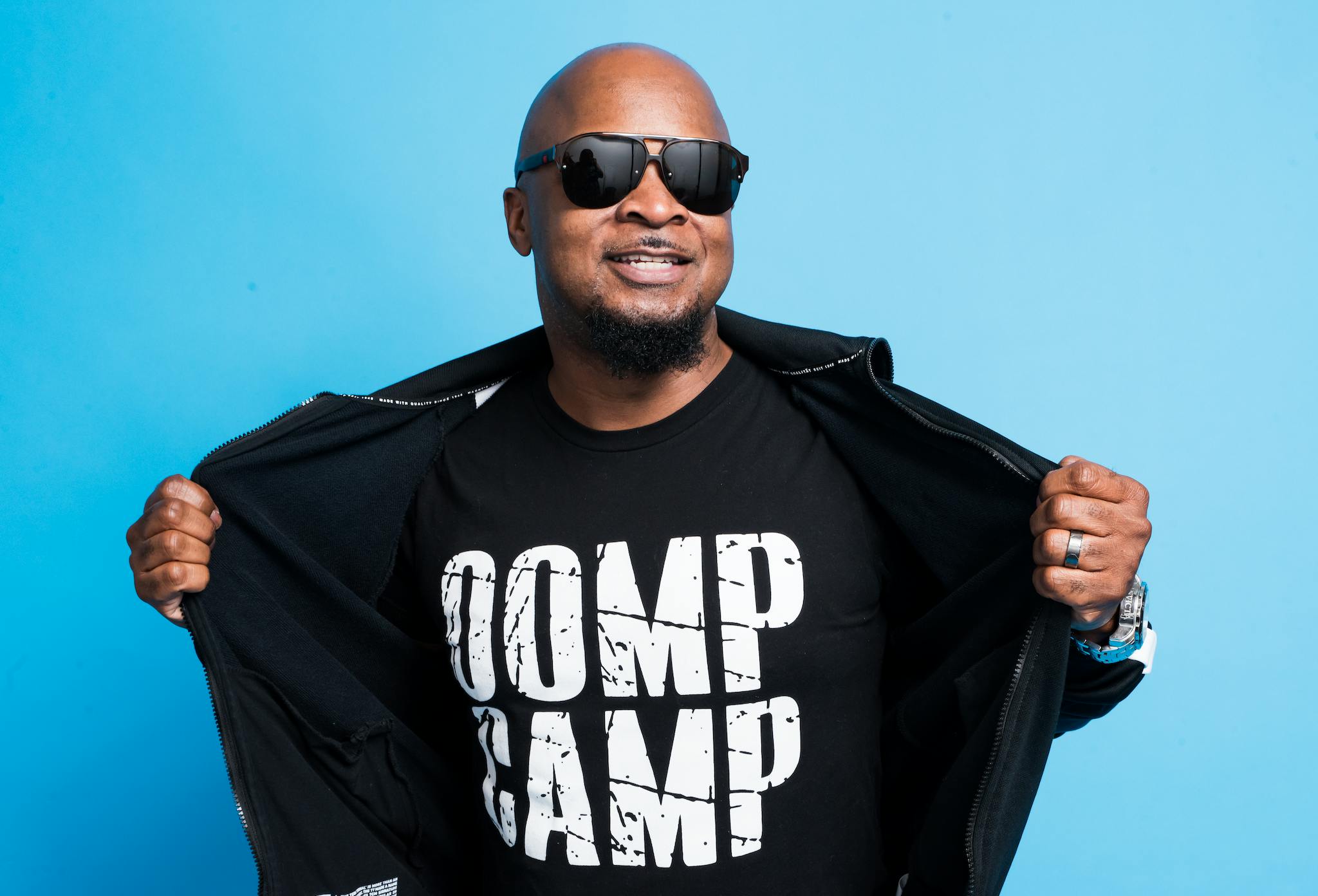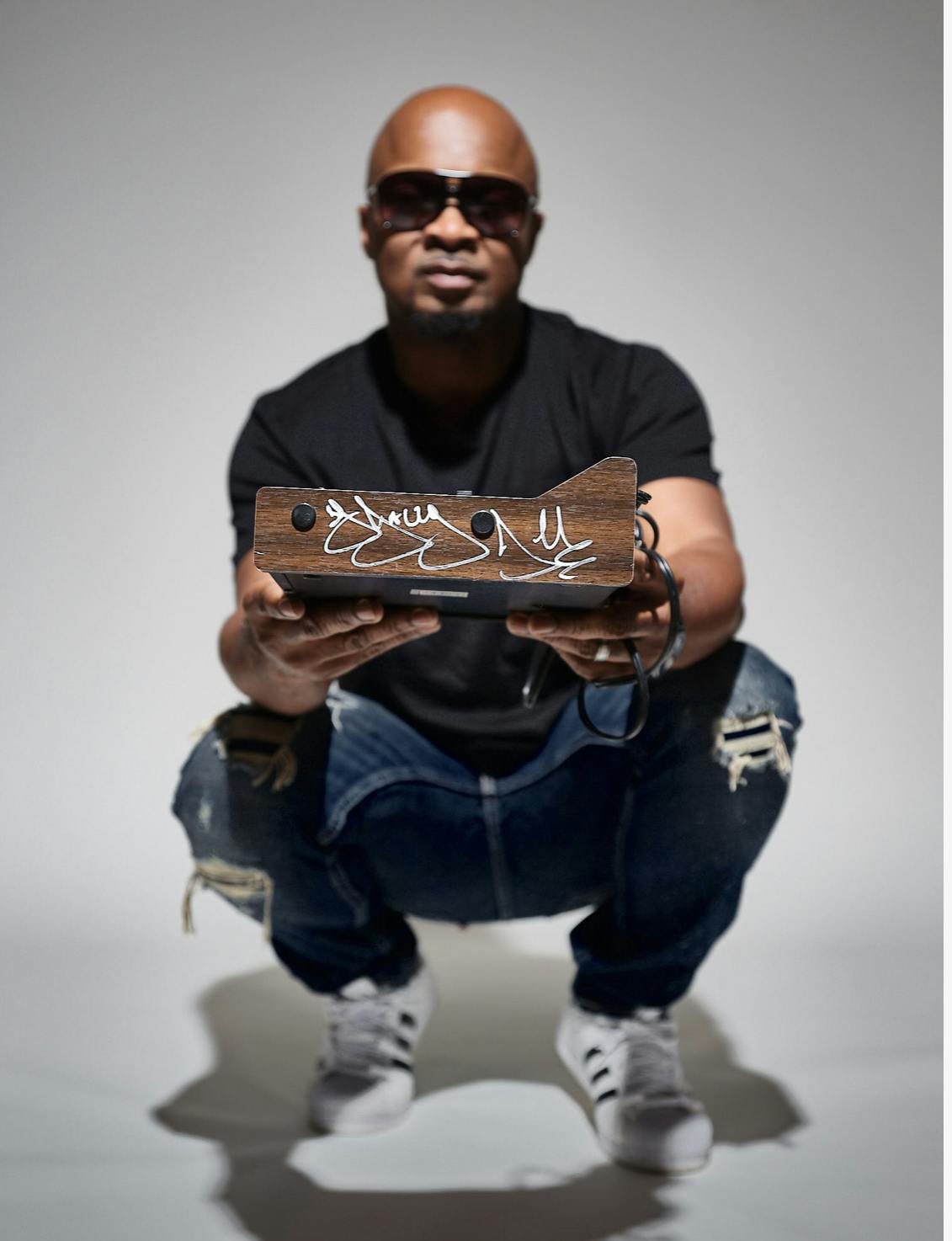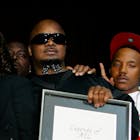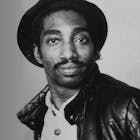
DJ Jelly: An Atlanta Hip-Hop Legend
DJ Jelly: An Atlanta Hip-Hop Legend
Published Mon, November 21, 2022 at 4:44 PM EST
DJ Jelly is something like an Atlanta icon.
Undoubtedly one of the most influential forces in Atlanta Hip-Hop, Jelly helped establish the first major indie rap label in Atlanta, Big Oomp Records, and landed the first mix show that solely played Atlanta rap on the city's Hip-Hop station Hot 97.9 (now 107.9). Obviously, he also played a pivotal role in breaking big-time artists — from OutKast and Goodie Mob to T.I. and Kilo Ali. Jelly's impact on southern Hip-Hop is undeniable.
ROCK THE BELLS caught up with the legendary DJ to talk about his early days in Atlanta, his time at Magic City (he was hired by Tag Team's DC The Brain Supreme), his role in the first all-Atlanta Hip-Hop mix show, the influence of his DJ Jelly and MC Assault mixtapes, and the impact he had on Atlanta and the south's biggest Hip-Hop acts.


Talk about your first Hip-Hop gig in Atlanta.
My first gig was Magic City in 1990. I got hired by DC The Brain Supreme from "Whomp There It Is." That was my first actual DJ job. I was actually working at Bobby Brown's studio as an apprentice, and I got fired. I'd been going to DC because I knew something was going on at Bobby Brown studio— they just hated the engineers. So of course, I went up to Magic City, I'd never DJ'd in the strip club in my life in Atlanta — this is my first year in Atlanta. I'm from St. Louis. And DC, you know, I talked so much stuff to him like every day, he hired me. It was crazy. Like, a week after I got fired from Bobby Brown's studio, he called me like, 'Jelly, come on in. Let me check you out.' And you know, I was already lying, like, 'Yeah, I DJ in strip clubs.' That was really my foot in the door. It was crazy. Because I was in my first year in college and I was DJing at Magic City. I consider that to be my college education. That was a real introduction to Atlanta.
So, you're working at Magic City in 1990 — what was the Hip-Hop scene like at that time?
It was all booty shake music. When I got there and realized how important the track "Set It Off," which came from Brooklyn, was. And Planet Rock was like those were the two main songs that DJs mix with other songs. And that drove to the beat of the club —that tempo. It was booty shaking — that was that vibe from Florida that Atlanta was on.
What music were you breaking back then?
Kilo [Ali] came through there as a teenager. Kilo's one of the top underground artists in Atlanta's history. A lot of New Jack stuff —Keith Sweat music, Kut Klose, the R&B group, Johnny Gill, BBD — these artists were coming through Magic.
Talk about the DJ Jelly and MC Assault mixtapes, which were majorly influential in Atlanta's Hip-Hop scene.
MC Assault, that's my partner. He wanted to take down the [King Edward J and the ] J Team. The J Team was the biggest mixtape group at that time in the late 80s and early 90s, and they were running in the streets. So they had the city on lock as far as breaking people's music, and then we came along. Our whole thing when we did mixtapes, we were basically doing mashups. We were remixing everybody's songs — we weren't doing no talking. The J Team, they did a lot of talking throughout their tapes, and so we were like, we ain't gonna do all that — we're just gonna come with that music, the 808s ... our mix CDs were like real production. And that's how we broke a lot of music during that time, like OutKast and Eightball & MJG, Triple Six Mafia. We became like the Bible. You got to understand something, in the early 90s, rap wasn't on the radio. So we were basically the radio. We'd play everything— we were playing people from Arkansas, we'd be breaking music from New Orleans... our taste became like the Bible of the music during that time, the radio of Atlanta at that time.
DROP YOUR EMAIL
TO STAY IN THE KNOW
In the early 90s, rap wasn't on the radio. So we were basically the radio.
Tell me about the formation of Big Oomp Records, which is widely credited as the first indie Hip-Hop label in Atlanta.
Like I said, we were breaking music, all of the OutKast stuff in the early 90s, all that. So we were breaking so many artists, we started building stores. We were like, okay, we're whole selling these mixtapes, let's get our own store. We can be our own retailers. And then we were like, well, we got a lot of people around us who like rapping, so I started putting our own people on mixtapes. So then MC Assault was like, well Oomp, we need to go ahead and do a record label. MC Assault, he was more like the maestro, he would just turn up me and Ooomp, like, 'Man, we need to do this, man. We need to do that.' So we were just like, we might as well just do a label. MC Assault had a group called Major Bank. That was the first group that we put out, which was more hardcore street stuff. And then Oomp wanted to get a hold of Sammy Sam. This is like '94, '95. So that's when we really started Big Oomp Records, as soon as Sam came. The Major Bank stuff was okay, but it didn't really hit. But as soon as we got Sammy Sam, who was one the biggest underground street rappers at the time, the label jumped off.
Big Oomp Records' impact on Atlanta Hip-Hop was huge.
We were the first major independent Hip Hop label, and the fact that we had stores, we had DJs ... I mean, nobody was doing it like that. And we were an actual label. So we retailed the music, we broke the music, and we had our own music. Our production, the sound, basically came from the mixtapes. The mixtapes were very instrumental in the production of Big Oomp Records. Our sound was like a combination of Memphis and west coast mixed with southern music in one, so we influenced a lot of the producers and a lot of artists at that time.
You all were pretty much the blueprint for indie Atlanta rap.
Everybody will tell you that who comes out of Atlanta, especially all of the artists that came out from the 2000s on, they'll tell you that, as far as the sound and the blueprint for being an actual label. We jumped that off.
During the time that the DJ Jelly and MC Assault mixtapes were heavy in the streets, you ended up on the radio.
Correct, '93 was my first job was on V- 103 with Ryan Cameron. They wanted the sound of what we were doing in the streets to be on the radio. But it wasn't an actual Atlanta show then.
So you were the first person to have a HIp-Hop show on the radio?
An Atlanta show. An all-Atlanta show. And that was in 1998 on Hot 97.
What was Atlanta radio like prior to you getting your show on Hot 97?
You gotta understand, in the 90s, especially the mid-90s when Hip-Hop stations started happening, it was all about the east coast and west coast that dominated the music. And you know, of course, Master P started breaking through, and our mixtapes started really jumping off, so we had a lot of down South content. We had a lot of music that people from around the United States didn't understand or know. And Freaknik, the DJ Jelly and MC Assault mixtapes introduced everybody to this southern music, all this Atlanta music. And [Hot] 97 wanted that. It was like look, DJ Jelly, MC Assault, we need that mixtape stuff that y'all be breaking. Jelly, we need you to do a whole show like that. Do what you do. And that's what the program director at [Hot] 97 did. He let me just do my thing for an hour, and it was the first time you heard straight Atlanta music on the radio, period.
He let me just do my thing for an hour, and it was the first time you heard straight Atlanta music on the radio, period.


Talk about your relationship with The Dungeon Family because you were key to helping them break their music.
It might have been Ray [Murray of Organized Noize] and them who came to me when OutKast first started jumping off. Of course, I was one of the DJs instrumental in breaking their music. They wanted me to go on tour with OutKast at first, but at that time, me and MC Assault had been jumping off all these flea markets, and we were starting Big Oomp Records. So my hands were tied. And then Goodie Mob came out, and by that time I was established, Big Oomp Records was popping... so I was like cool, I'll go on tour with Goodie.
So when you were hired at Hot 97, you had an interesting story about OutKast's "Elevators."
Dre [Andre 3000] and Gipp [Big Gipp] came to me when I first got settled, they were like, 'We got this record...' It was a yellow label. They were like, 'Jelly, we need your support, we need your help ASAP, we you need to put it on.' I was like no question. "Elevators" — I banged that record for two hours straight, bringing it back, to back, to back, to back, to back. So L.A. Reid [of LaFace Records] called up to my program director like, 'Look, he got to go stop playing the music... and he got to go too.' And my program director stood up for me, like, 'Look, we good. This is what we do. We're a Hip-Hop station,' blah, blah, blah. So I was straight. So I didn't get fired like I did at Bobby Brown's studio for being courageous. That's me, I've ways been an adventurer. That's what I do. If I have some fire musical artists, I'm just gonna tell the world about it.
What are you up to these days? I know you're still doing a lot on the music scene, including hosting a radio show.
I'm a part of a festival called the Weirdo Fest. That me and some other partners. It's basically a festival where you have music that's not of the Atlanta norm, or what people would classify as "Atlanta" music. So my thing is, as a DJ, I'm a fan of music first. I've always been about people who were creative. And that's something that's really important. The festival is an Atlanta thing but again, it's just different. Different talent. I do a lot of collaborations with beer breweries. That's been my thing. I'm a beer head, so I do a lot of collaborations with breweries around town. I still do a lot of consulting and booking for artists, old and young. And I consult a lot of people's projects, a lot of up-and-coming artists. I do a lot of stuff with live mixtapes. I'm always in the mix. I'm also over V-103, I have a show on Sundays from eight to 10, The DJ Jelly Mix Show.






